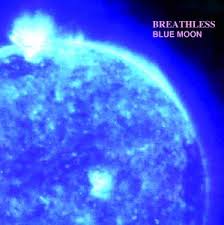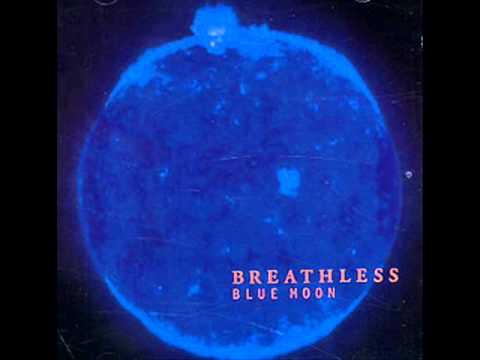A band seemingly purpose-built for sad lovers and melancholics everywhere, Breathless have remained something of a well-kept secret since their first release in 1984, despite pioneering the type of romantic and moody indie rock that other artists have made lucrative careers from. Initially working in the same psychedelic post-punk area as the early 4AD bands (singer Dominic Appleton would subsequently record with This Mortal Coil), they gradually pared back their sound to become more direct and conventionally melodic, though still touched by a sense of unrequited longing, perhaps best summed up by the title of their 1991 album, Between Happiness And Heartache.
They sat out most of the 90s, but returned in 1999 with the expansive and experimental Blue Moon. Listening back to it in 2016, it’s tempting to position this album as a canny distillation of what groups as diverse as Bark Psychosis, Tindersticks, Spiritualized and Mogwai were doing during that decade beneath the mainstream clatter of first grunge, and then Britpop: finding new ways to work with space and silence in rock. But seeing as Breathless pre-dated all of these bands, it seems more likely that they had refined down their existing sound to its core essence to create an album that got to the very heart of their appeal.
Like Can, Breathless recorded all of their rehearsals, mining for those moments of magic that happen when a band jams together. As such, much of the music on Blue Moon is based on improvisation which has retrospectively been structured and arranged. Opening track ‘Walk Down To The Water’ takes this approach in its purest form, with just a vocal added to a rehearsal tape instrumental. All of the key elements of the Breathless sound are here: a simple keyboard drone; keening, atmospheric guitar; the dry patter of drums; a restrained yet emotional voice. It’s gloriously unhurried, but there’s a gradual accretion of sound that subtly shifts the song from minimal to maximal, almost without the listener noticing, a trick that Breathless repeat throughout this album.
Unsurprisingly, the vibe is almost exclusively nocturnal, as though Blue Moon was recorded in one massive candlelit all-night session (and yes, that’s an allusion to the making of Talk Talk’s extraordinary Spirit Of Eden and Laughing Stock albums, fans of whom will find much to love here). ‘Viva’ features eerie contrails of guitar against a dusk-pinked sky, majestic but fleeting, while ‘Goodnight’ is a mournful, cosmic ballad. In the wrong hands, it’s easy for this type of stuff to become chocolate box whimsy, but here, there’s no premeditation: every note feels like the only note that could be played.
There’s another, more abrasive side to Breathless revealed on this album too. ‘Magic Lamp’ starts with a chiming bass figure, but then bursts dramatically into fuzzed-out, space rocking life, with a shamanic, panting vocal at its climax that recalls Levitation at their gnarliest. ‘Come Reassure Me’ is also definitely in psych rock territory, Loop-esque guitar over a nagging organ riff before another explosive gear shift and what sounds like a devils’ choir underneath Appleton’s overlapping vocal.
It gets colder and spookier as the night wears on. ‘Drifting’ feels claustrophobic, its vocal deliberately small, its skittering drums almost threatening, while ‘Ballroom’ is just an acoustic guitar plucked sombrely over and over again in, yes, a ballroom. ‘No Answered Prayers’ closes the album in fitting style, spectral guitar and horror-show keys building in volume and intensity until all musical forces have been marshalled into a heavy and clangourous krautrock throb.
(Though that’s not the end on this reissue, which sees the album released on vinyl for the first time and features two bonus tracks: ‘Moonstone 3’ is the noise of machines talking to themselves, from industrial to celestial then back again; ‘Blue Moon’ is a delicate cat’s cradle of reverberant guitars and what sounds like a distant sax.)
Blue Moon should have been a keystone album for the emerging post-rock scene, but instead it’s another lost treasure left glinting in the dust. If you like music that’s both contemplative and impassioned, this reissue is an essential rediscovery.



